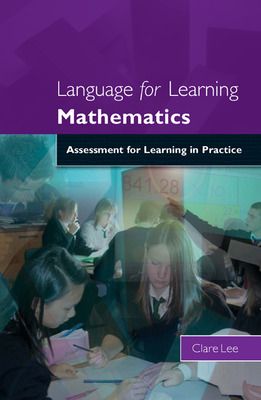Language for Learning Mathematics: Assessment for Learning in Practice
1st Edition
0335226140
·
9780335226146
© 2006 | Published: June 16, 2006
Assessment for learning is a powerful way to raise standards and improve learning. However, as this book shows, effective assessment for learning in the mathematics classroom depends on pupils being able and willing to use mathematical language to ex…
Read More
Request More Info
After you purchase your eBook, you will need to download VitalSource Bookshelf, a free app or desktop version here. Then login or create an account and enter the code from your order confirmation email to access your eBook.
- Access the eBook anytime, anywhere: online or offline
- Create notes, flashcards and make annotations while you study
- Full searchable content: quickly find the answers you are looking for
Acknowledgements
How this book tells its story
How this book tells its story
Increase discourse - increase learning
Mathematical Language – what it is and what it isn’t
Starting to talk in the mathematical classroom
Assessment for Learning
Going further with purposeful communication in mathematics
The source of the ideas - delving into theory
Looking at practice more deeply
References
Index
Assessment for learning is a powerful way to raise standards and improve learning. However, as this book shows, effective assessment for learning in the mathematics classroom depends on pupils being able and willing to use mathematical language to express their ideas. When discussion, negotiation and explanation are encouraged, teachers use assessment for learning creatively, the work quickly becomes more challenging and the pupils come to see themselves as successful learners.
Many pupils find it difficult to express ideas in mathematics because of problems with the language that is used to convey mathematical concepts. This book shows teachers how to help pupils express what they really know and understand, so that assessment for learning can be used. The book:
- Discusses what mathematical language is, and what it is not
- Suggests practical approaches to introducing more discourse into the classroom
- Explores the ideas of assessment for learning – rich questioning and dialogue, effective feedback, and peer and self assessment – and suggests how these can be used effectively in mathematics classrooms to improve learning

